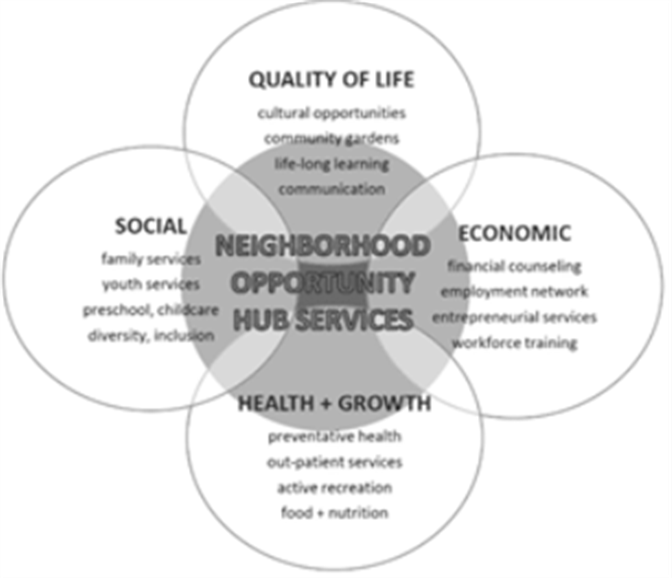Bridging Communities with Neighborhood Opportunity Hubs
Our team has worked with community leaders to build growth plans, message change initiatives, and redevelop neighborhoods for over forty years. Since 2014, we have specifically advanced the concept of Neighborhood Opportunity Hubs.
Distressed neighborhoods often experience a steady decline in household wealth, education levels, and individual health indicators. This is not just a local phenomenon but one that carries across much of the nation. Poverty, household income, and inequality as economic indicators have been moving in a negative direction for much of the past decade for a growing number of urban and rural neighborhoods.
There often is a disconnect for our more impoverished neighborhoods between the unmet needs of their residents and the available opportunities to address them. Access to important services and opportunity is difficult due to issues such as limited transportation and childcare options, lack of financial resources, and a general lack of confidence and sometimes trust in engaging with unfamiliar institutions or organizations. Too often, there are very real and personal roadblocks that prevent struggling households from taking advantage of the opportunities that are available.
Neighborhood Opportunity Hubs are intended to establish a convenient, visible and inviting front door to a wide range of opportunities. An Opportunity Hub may be integrated into an existing community center, education facility or easily accessed public space. It first and foremost should be a comfortable gathering place for residents of all ages. It may serve as a place for neighbors to socialize and recreate as well as to engage in accessing needed services and opportunities. A critical element, in keeping with the 15-minute Complete Neighborhood concept - a neighborhood-based resource that is easily accessed.


